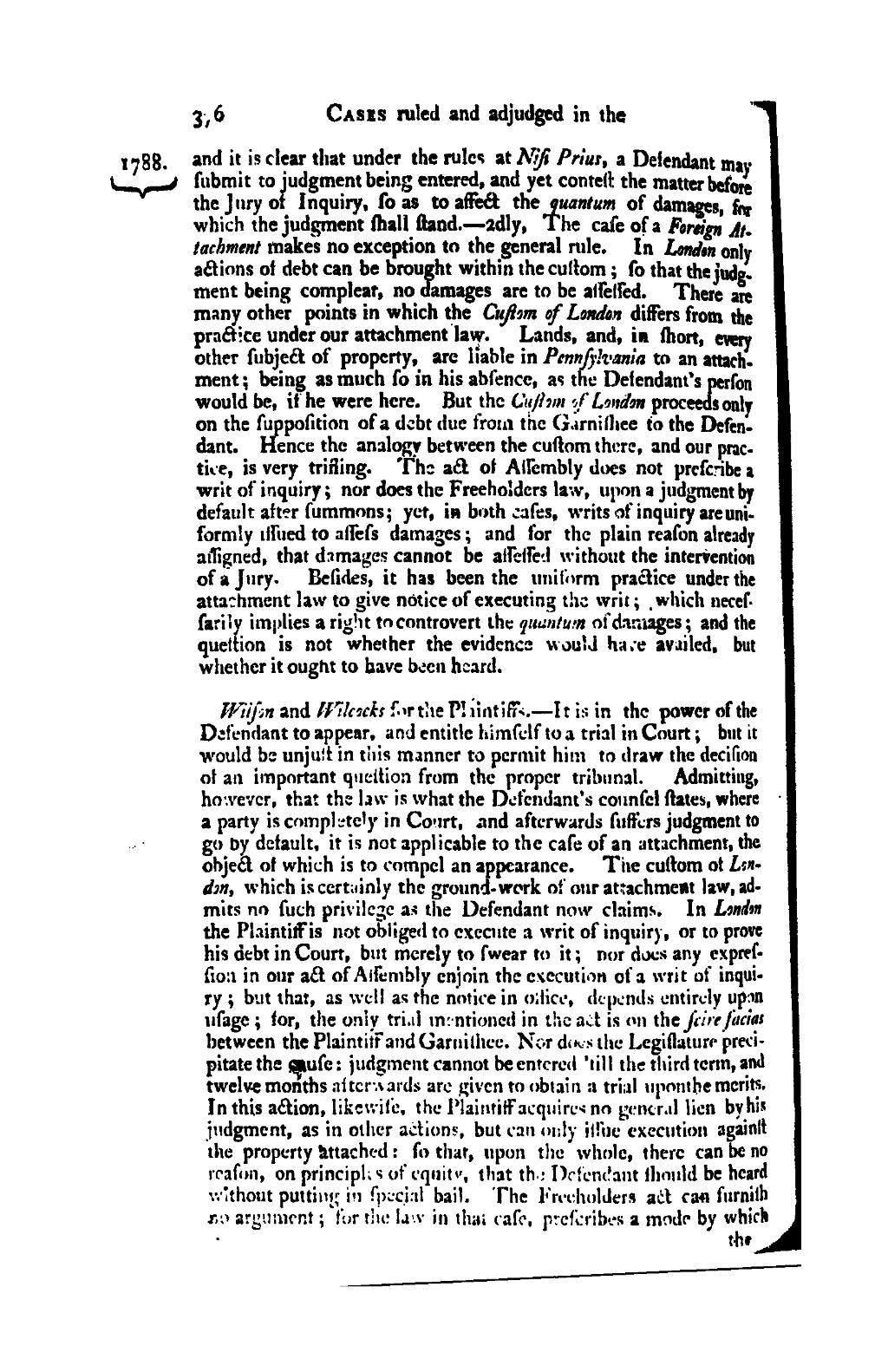1788.![]()
and it clear that under the rules at Niʃi Prius, a Defendant may fubmit to judgment being entered, and yet conteft the matter before the Jury of Inquiry, foas to affect the quantum of damages, for which the judgment fhall ftand.– 2dly, The cafe of a Foreign Attachment makes no exception to the general rule. In London only actions of debt can be brought within the cuftom ; fo that the judgment being compleat, no damages are to be affeffed. There are many other points in which the Cuʃtom oƒ London differs from the practice under our attachment law. Lands, and, in fhort, every other fubject of property, are liable in Pennʃylvania to an attachment; being as much fo in his abfence, as the Defendant's perfon would be, if he were here. But the Cuʃtom oƒ London proceeds only on the fuppofition of a debt due from the Garnifhee to the Defendant. Hence the analogy between the cuftom there, and our practice, is very trifling. The act of Affembly does not prefcribe a writ of inquiry ; nor does the Freeholders law, upon a judgment by default after fummons ; yet, in both cafes, writs of inquiry are uniformly iffued to affefs damages; and for the plain reafon already affigned, that damages cannot be affected without the intervention of a Jury. Befides, it has been the uniform practice under the attachment law to give notice of executing the writ ; which neceffarily implies a right to controvert the quantum of damages ; and the queftion is not whether the evidence would have availed, but whether it ought to have been heard.
Wilʃon and Wilcocks for the Plaintiffs.–It is in the power of the Defendant to appear, and entitle himfelf to a trial in Court; but it would be unjuft in this manner to permit him to draw the decifion of an import queftion from the proper tribunal. Admitting, however, that the law is what the Defendant's counfel ftates, where a party is completely in Court, and afterwards fuffers judgment to go be default, it is applicable to the cafe of an attachment, the object of which is to comel an appearance. The cuftom of London, which is certainly the ground-work of our attachment law, admits not fuch privilege as the Defendant now claims. In London the Plaintiff is not obliged to execute a writ of inquiry, or to prove his debt in Court, but merely to fwear to it; nor does any expreffion in our act of Affembly enjoin the execution of a writ of inquiry ; but that, as well as the notice in office, depends entirely upon ufage ; for, the only trial mentioned in the act is on the ʃcire ƒacias between the Plaintiff and Garnifhee. Nor does the Legiflature precipate the caufe: judgment cannot be entered ‘till the third term, and twelve months afterwards are given to obtain a trial upon the merits. In this action, likewife, the Plaintiff acquires no general lien by his judgment, as in other actions, but can only iffue execution againft the property attached: fo that, upon the whole there can be no reafon, on principals of equity, that the Defendant fhould be head without putting in fpecial bail. The Freeholders act can furnifh no argument; for the law in that cafe, prefcribes a mode by which
the

